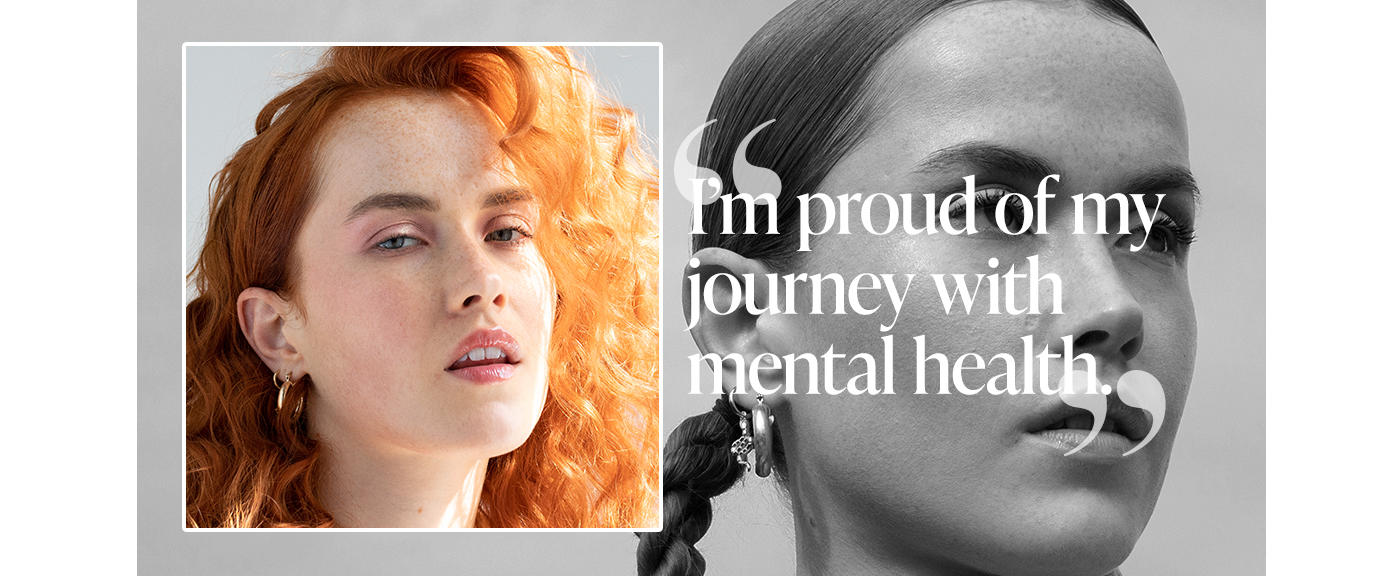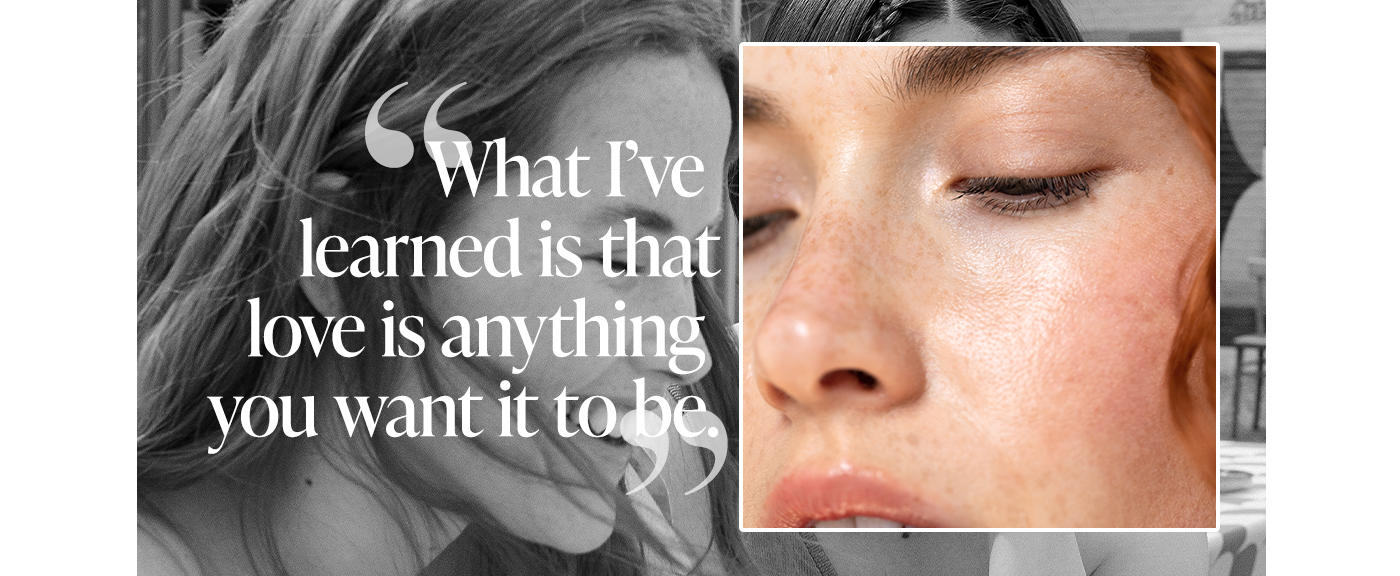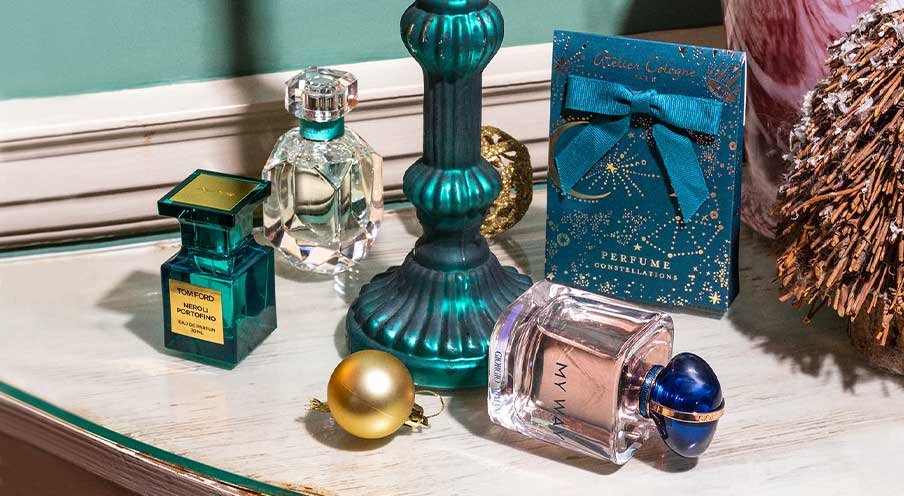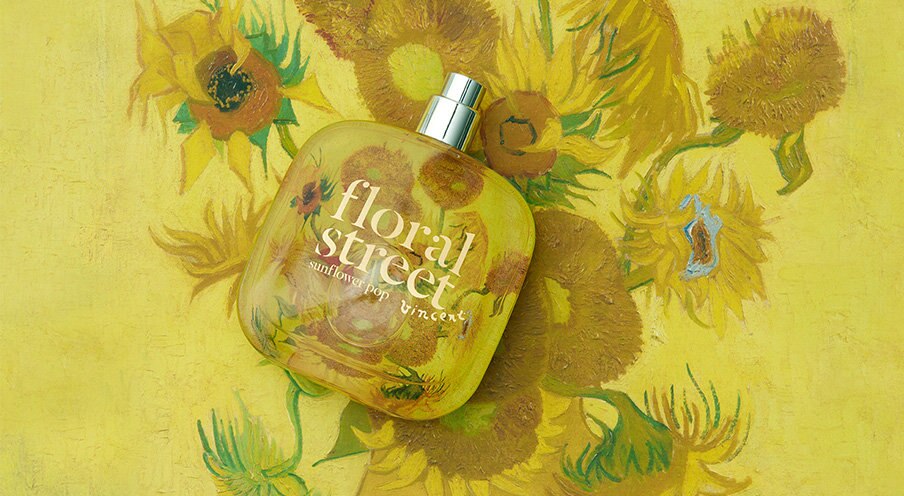Personal journeys: we all have them. Long, short, winding and unwinding, each shapes our lives in ways we never really anticipate; Ella’s is no exception. Peppered with pride and an infectious honesty, it’s nothing short of inspiring. We learn all about how how she discovered her bisexuality and her relationship with disordered eating, to how she celebrates herself each and every day. Messy, vulnerable, and everything in between, she reminds us of the undeniable, unique beauty that comes with being human.
For those of you who have previously struggled or are currently struggling with an eating disorder, there may be some parts of this interview you find distressing. Please only read on with this in mind.
My name is Ella Blu, my pronouns are She/Her. I am a model and yoga-lover.
What makes you unique?
I am unique because I have chosen to use my journey as an opportunity for self-growth, as opposed to something that can hold me back.
What are you proud of?
I’m proud of my journey with mental health; I’m currently recovering from an eating disorder. I’m also proud of myself, and I think that’s such an amazing thing to say. I don’t feel it everyday, but the overarching feeling is that I’m proud of myself and for what I’ve done, and for what I will do.
What are some of the steps you take to protect your mental health?
To look after myself. That might include being conscious of where I am on a daily basis, or where I am in the greater picture of my recovery and what I’m hoping to achieve. It could be me being conscious of situations that I might find triggering, or being aware that I might not be able to do everything that other people might be able to do, like talking flippantly about dieting or body image. I often have to take more care of myself around those situations.
Why is it important to you to be vocal about your mental health?
I think mental health is surrounded in shame, and I think one of the most important things about speaking about it is relinquishing some of that. It’s taken me a really long time in my journey to feel able to speak up and speak out about my own experiences, and even if you don’t feel like you are there personally, having space for others to speak about their own journeys - if they feel comfortable to do so - only paves the way for you to do that for yourself. Speaking about my journey has been a massive part of my recovery and still is, and I hope it gives other people the strength to do the same.
Do you think there is still some shame for you?
Definitely. To talk about it still feels really daunting, and every time I say it, there’s a small part of me that goes, thank God. Thank God that’s out there, thank God you’ve done it, and it’s just chipping it away. It’s really hard but it’s really powerful.

Can you tell us about your recovery from Anorexia?
I was diagnosed with Anorexia when I was 15. From then on, it’s been something I’ve had to contend with daily since, and it’s something I’m constantly aware of.
What came first, modelling or disordered eating?
My Anorexia came first, and then I started modelling when I was 17. At the time, I was probably more going through denial, or less awareness of it. I was quite recovered, but then I think I had my head in the sand, thinking I can live the rest of my life normally and I never have to think about my eating disorder again. But, there have been loads of work situations where I now realise - in hindsight - were so detrimental to my mental health and I never should have done them. I understand they were all necessary to get me to where I am now, and it probably was a terrible idea, but at the time I thought it was a good idea. Now, I can look back and see that situation triggered a relapse. In terms of work: being a model and having an eating disorder, it’s hard to think about whether you are engaging in diet culture from a work perspective, or whether you’re engaging in diet culture from a relapse perspective. Even now, that line is really blurred, and it’s hard work.
What is it like to be in the modelling industry when you are recovering from an eating disorder? What steps do you take to protect yourself?
Strength has only come in more recent years, but it might be that I turn down certain jobs, or I have to remove myself from certain situations - be it a casting, or working with certain clients that I know might make my recovery harder. It’s been really difficult to put myself first in the workplace, as opposed to just in my day to day living, but it’s something I’m incredibly proud of. Now, I feel like I’m strong enough to say: this might be great for my career, but it’s not great for me, and that’s more important.
What do you think about body diversity in beauty and fashion?
I think body diversity in the industry has really improved, and it’s something I’m so happy to see, but I still do recognise a selection process for certain body types, or which might be more ‘palatable’ for the consumer, which is something that needs to be improved on.











